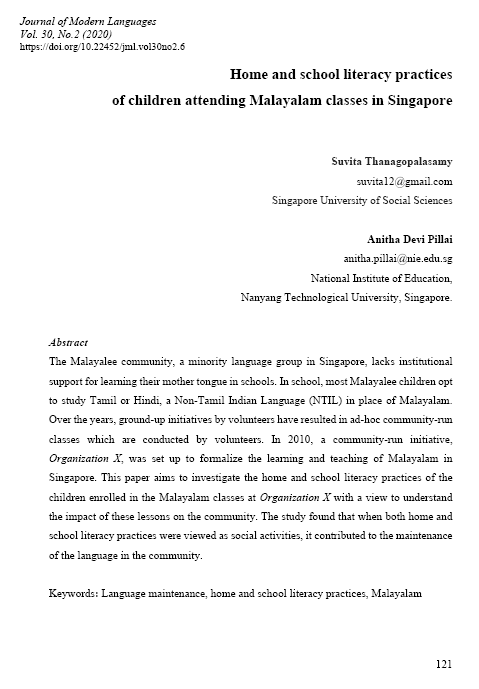Home and school literacy practices of children attending Malayalam classes in Singapore
DOI:
https://doi.org/10.22452/jml.vol30no2.6Keywords:
language maintenance, home and school literacy practices, MalayalamAbstract
The Malayalee community, a minority language group in Singapore, lacks institutional support for learning their mother tongue in schools. In school, most Malayalee children opt to study Tamil or Hindi, a Non-Tamil Indian Language (NTIL) in place of Malayalam. Over the years, ground-up initiatives by volunteers have resulted in ad-hoc community-run classes which are conducted by volunteers. In 2010, a community-run initiative, Organization X, was set up to formalize the learning and teaching of Malayalam in Singapore. This paper aims to investigate the home and school literacy practices of the children enrolled in the Malayalam classes at Organization X with a view to understand the impact of these lessons on the community. The study found that when both home and school literacy practices were viewed as social activities, it contributed to the maintenance of the language in the community.
Downloads





